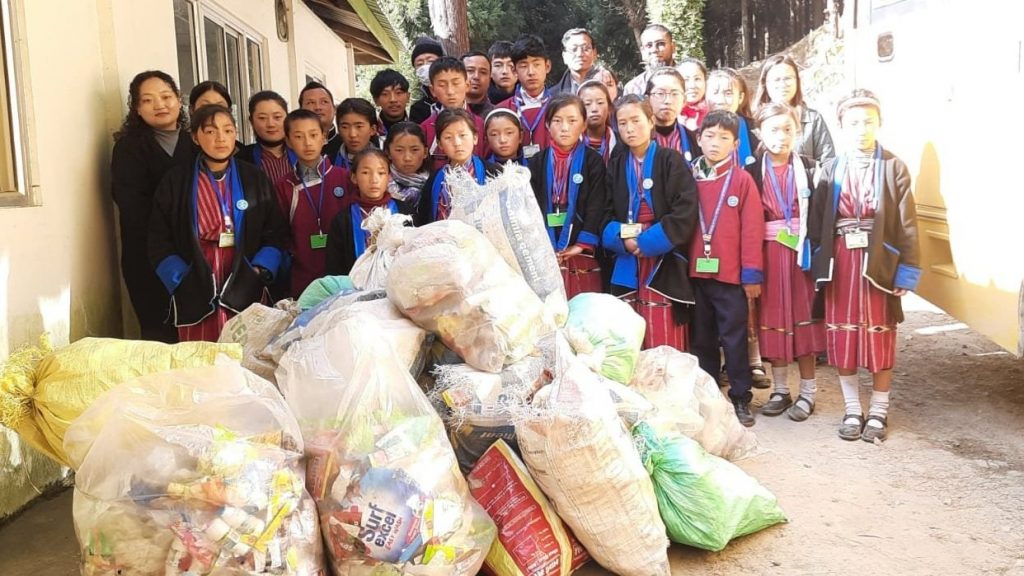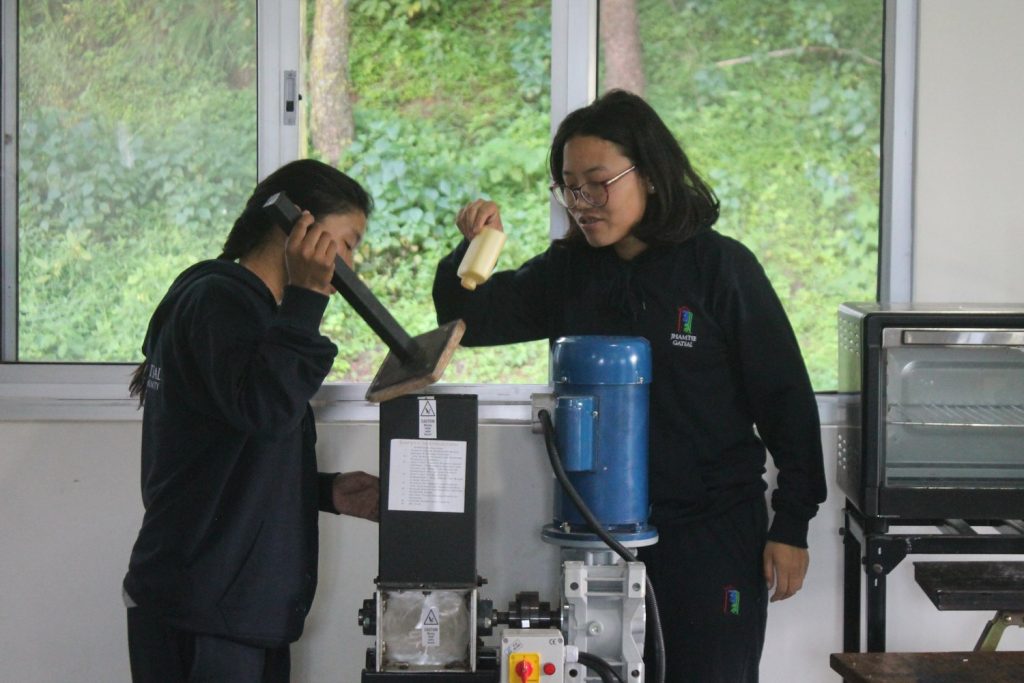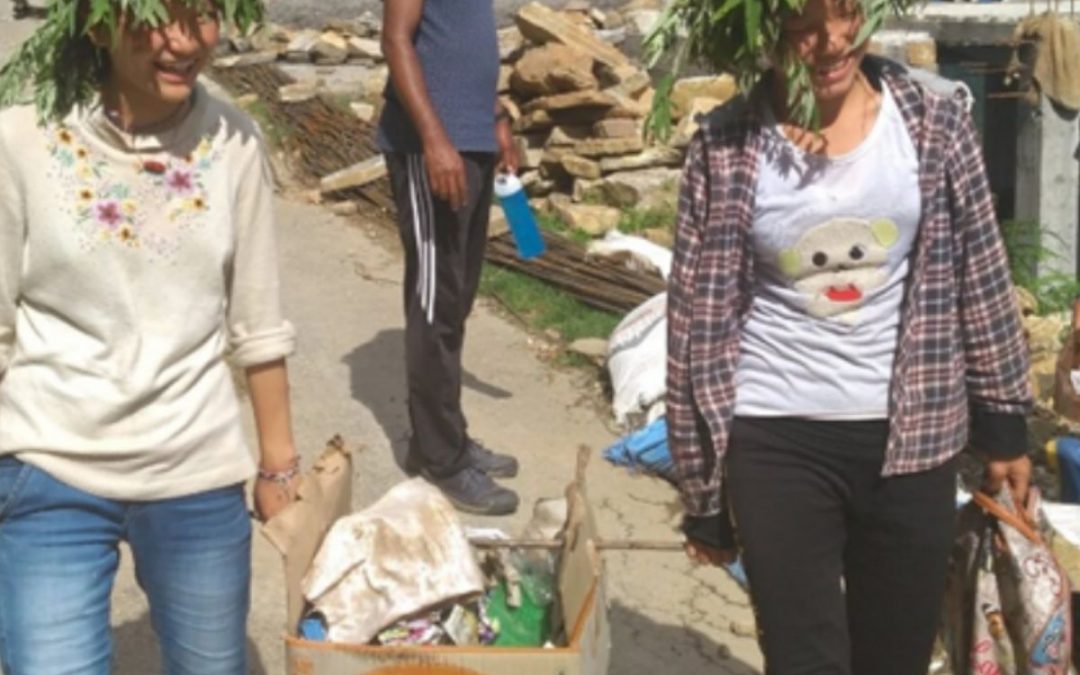Imagine standing amidst the breathtaking serenity of the Himalayas—snow-capped peaks glistening in the sun, the crisp mountain air invigorating your spirit. Now, imagine this serenity marred by something entirely unnatural: discarded plastic bottles, wrappers, and waste, scattered across the pristine landscape. This is the stark reality in many mountainous regions today. But at Jhamtse Gatsal, a community and school nestled in the remote Himalayan village of Lumla, Arunachal Pradesh, something remarkable is taking shape.
A Vision Beyond Education
Jhamtse Gatsal, which means “Garden of Compassion” in Tibetan, is more than just a school—it is a thriving community built on the pillars of love, compassion, and sustainability. While the school provides its students with a robust academic foundation, it goes beyond conventional education by instilling a deep respect for the environment. In this idyllic yet vulnerable setting, the community faces a modern menace: plastic waste. The lack of proper waste disposal systems in the region has exacerbated the issue, making innovation and action not just desirable but necessary.
From Problem to Opportunity: Tackling Plastic Waste

The journey began with a simple yet profound question: What if the waste we produce could be repurposed into something valuable? The community at Jhamtse Gatsal embraced this challenge, transforming it into an opportunity to educate, innovate, and inspire. They established a plastic recycling initiative that integrates environmental consciousness into the daily lives of students and staff.
The initiative collects plastic waste from the school, surrounding villages, and even nearby government schools, where students are encouraged to gather plastic and bring it to Jhamtse Gatsal for recycling. This collaborative effort not only addresses the waste issue but also spreads awareness about the importance of recycling in preserving the fragile Himalayan ecosystem.
The Art of Repurposing: Creativity Meets Sustainability

What happens to the collected plastic? This is where Jhamtse Gatsal’s ingenuity shines. Under the guidance of dedicated mentors, students learn to transform plastic waste into usable and creative products. Old plastic bottles are turned into plant holders, wrappers become woven mats, and other discarded materials find new life as decorative or practical items.
For instance, students craft bricks from compressed plastic waste, which are then used in construction projects. These bricks are durable, cost-effective, and a testament to the potential of turning trash into treasure. By engaging students in this hands-on process, the school teaches them that even the smallest efforts can contribute to solving big problems.
Ripple Effects: A Community Transformed
The impact of Jhamtse Gatsal’s recycling practices extends far beyond the boundaries of its campus. Surrounding communities are increasingly inspired to adopt similar practices, reducing their reliance on single-use plastics and rethinking waste management. Government school children who once disposed of plastic waste indiscriminately now actively participate in collecting and repurposing it.
The students at Jhamtse Gatsal emerge not just as environmentally conscious individuals but as change-makers who carry the message of sustainability wherever they go. The initiative has become a blueprint for how education, community action, and environmental stewardship can coexist harmoniously.
A Lesson for the World
Jhamtse Gatsal’s efforts underscore a powerful lesson: environmental challenges, no matter how daunting, can be met with creativity, collaboration, and compassion. In turning waste into worth, this Himalayan community has shown that solutions to even the most pressing problems can emerge when people work together with purpose.
As we marvel at their success, let’s ask ourselves: What can we learn from Jhamtse Gatsal’s example? How can we, in our own lives, turn waste into worth and make the world a cleaner, greener place?
The answer, as Jhamtse Gatsal teaches us, lies in the transformative power of small, consistent actions. With a little innovation and a lot of heart, we can all become stewards of our planet.

